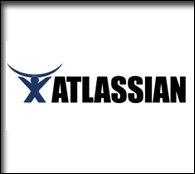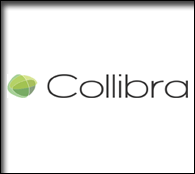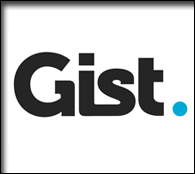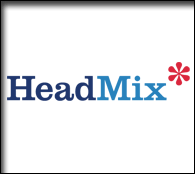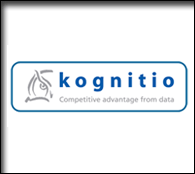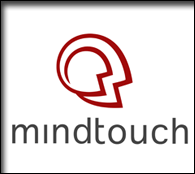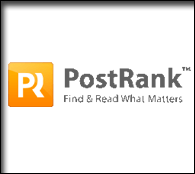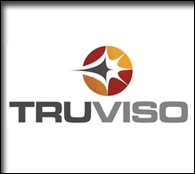Archive for April, 2007
Registration Opens
by Eric Norlin on Apr.30, 2007, under general
We’ve opened registration for Defrag, and if you’re reading this I’d bet that you’re pretty up to speed on what we’re doing — but just in case you’re not…
The agenda is here. As you can see, we’re setting up for lots of interaction, lots of thought twisting, a reception and dinner on the town.
And, as if that’s not enough, some of our early speakers (we’re still adding lots) are here. Folks like Esther Dyson, Ward Cunningham, Marti Hearst, Lou Paglia, David Weinberger, Andy McAfee, Tara Hunt, Brian Oberkirch are coming, and you should too.
Bottom line: a new topic, a new town, a great gathering of smart people trying to solve thorny problems.
Defrag’s “list of benefits” is only going to grow between now and November, while the availability of conference passes (which will be limited) is only going to shrink. Put those two together and what do you get?
A great reason to register today.
ThinkFree goes Gold
by Eric Norlin on Apr.30, 2007, under sponsors
We begin the new Defrag week (where we’ll no doubt spend a lot of time talking about MIX) by adding ThinkFree as a Gold sponsor. Welcome guys!
For those of you keeping track at home:
Platinum Sponsor: BEA Systems
Gold Sponsors: Newsgator and ThinkFree
Silver Sponsors: HiveLive, Lijit and Me.dium
Breakfast Sponsors: Collective Intellect and Custom Scoop
If you’d like to learn more about sponsoring Defrag, email me enorlin AT mac.com.
Lou’s on board
by Eric Norlin on Apr.27, 2007, under advisory board, speakers
Lou Paglia, who I found through a comment on this blog, is now on-board as a speaker at Defrag. If you don’t know Lou, check out his blog.
And while you’re checking out things, check out the most recent agenda. Yes, it is still *very* rough, but it should start to give you an idea of where our head’s at.
One last note: Elizabeth Churchill has joined the advisory board (we’re still getting a pic and bio up).
And the hits just keep on coming…
Enterprise 2.0 Rave
by Eric Norlin on Apr.26, 2007, under industry stuff
If you’re gonna be in NYC on May 21-22, you’ll want to check out the Enterprise 2.0 Rave — a 24 hour brainstorming session being put on by Corante.
Corante is a brand new media partner for Defrag, so if you plan to attend the Rave, use the code “defrag” and you’ll get 250 bucks off of the ticket price. ![]()
Speaking of Speakers
by Eric Norlin on Apr.26, 2007, under speakers
I’ve added Brian Oberkirch and Peter Merholz to the speaker list (they’re gonna do some interesting stuff with designing for hackability), and in an attempt to escape charges of “sameness,” I’ve invited some folks that you wouldn’t normally see on a schedule — folks like Lou Paglia (of Factiva/Dow Jones) and Karen Schneider (of Free Range Librarian). I’m still waiting on both of them to confirm, but in the meantime, who *should* be on stage that knows something really interesting about Defrag topics (or, even better, is doing something interesting) that you wouldn’t normally see at [insert typical tech conference name here]?
??
I’m looking for all ideas — enorlin AT mac.com.
An ML I didn’t know existed
by Eric Norlin on Apr.23, 2007, under standards
I just found the APML workgroup (that’s attention profiling markup language, for those of you keeping score at home). I had no idea — why am I not kept informed of these things? ![]()
Anyway, I’m reaching out to Mitch Ratcliffe now (we’ve been arguing about various things since the late 90s) to get the appropriate intros…..
Add two to the list
by Eric Norlin on Apr.23, 2007, under speakers
I just confirmed two more speakers for Defrag:
1. Marti Hearst from UC-Berkeley and the Flamenco Search project.
2. Ward Cunningham, the inventor of the wiki.
Add them to Esther Dyson, Andy McAfee (from Harvard Business School), Tara Hunt and Chris Messina (of Citizen Agency), Paul Kedrosky, Clay Shirky, Jeff Clavier, Jerry Michalski, David Weinberger and Brad Feld……and we’re adding more all of the time.
Not Rubik’s Cube…
by Eric Norlin on Apr.23, 2007, under defrag "theory"
(I was lying in bed last night and this occurred to me. I’m not sure it works, but I’m putting it out here anyway for dissection.)
You might remember my post about Discovery and Assembly (with an Active-Passive vertical axis). Well, I think I’ve added a third dimension. Try to visualize this with me:
On the horizontal axis, on the left is “Discovery” and on the right is “Assembly” — where I take these terms to represent, as broadly as possible, the two fundamental actions. The act of “discovery” is to find something out. The act of “assembly” is to build something.
On the vertical axis, on the top is “Active” and on the bottom is “Passive” — where I take “active” to be an action that you, as an agent, take and “passive” to be an action that another agent takes in your stead (I don’t speak to “permission”).
On the “spatial” axis (ie, this one goes front to back and makes this a cube), on the front is “explicit” and on the back is “implicit” — where “explicit” means that the technology is “apparent” to the user (not in the sense that they see the Google algorithm work, but rather that they know it is working), and “implicit” means the technology is not apparent to the user.
Then, looking at the cube, you have 8 boxes (or combos of these 3):
Discovery-Active-Explicit (top, left, front)
Assembly-Active-Explicit (top, right, front)
Discovery-Active-Implicit (top, left, back)
Assembly-Active-Implicit (top, right, back)
Discovery-Passive-Explicit (bottom, left, front)
Assembly-Passive-Explicit (bottom, right, front)
Discovery-Passive-Implicit (bottom, left, back)
Assembly-Passive-Implicit (bottom, right, back)
The great majority of “web 2.0″ work has occurred in the Discovery-Active-Explicit and Assembly-Active-Explicit sectors of the cube. Google (most search in general) is a act of discovery, where the user is doing the act, and the technology is apparent (i press submit, it returns results). Anything involving building a mashup with an open API is Assembly-Active-Explicit. Follow so far?
Now, here’s the trick: Can I name an example (or an idea of an example) in each sector of the cube?
Discovery-Active-Explicit: Google, Yahoo!, Ask.com, RSS readers (in their current state), etc.
Assembly-Active-Explicit: Open APIs, etc.
Discovery-Active-Implicit: this is where the user is working with information in collaborative space, and the technology is assisting (by correlating relevant info, or linking to other’s work) without the user seeing that happen.
Assembly-Active-Implicit: The ability to assemble applications via an interface where the technology is not apparent in the action. Example: Teqlo.
Discovery-Passive-Explicit: The act of discovering something, where I do not take direct action, but the technology is apparent anyway. Example: Me.dium. (I surf, me.dium relays that to the community, I see the collection of the community and individual surfing.)
Assembly-Passive-Explicit: The assembly of something, where I do not take direct action, but the technology is apparent anyway. Example: an algorithm that is personalizing a webpage, or set of applications for me in response to my behavior on that site (or with that application), and explicity showing me what’s it is doing as we go. So, for instance, I’m on orbitz, and the site is working between the APIs of United and Hertz, assembling deals for me while I’m merely telling it I want to go to Vegas (ie, it is being my agent), and showing me what its doing as it goes (ie, “do I have your permission to sign you on from application X to application Y?”).
Discovery-Passive-Implicit: The act of discovery, where I am not acting as my own agent, and the technology is not apparent to me. Example: A collaborative space where an agent of mine is showing me relevant and contextual information without me doing anything (it knows from my past) and without me seeing it happening. Best real world example I can think of: going to Amazon and the recommendations are just there, or turning on Tivo and programs are just there (recorded while you were away).
Assembly-Passive-Implicit: The act of putting things together, where I’m not my own agent and the technology is not apparent. Okay - that’s tricky. Example: hmmmm, i’m stuck…it would have to be an agent, assembling applications for me, where I don’t see it happen (calendar automation that books airline tickets and dinners with my top three friends in that city, perhaps?).
Does all of this hold? I don’t know. Let me test it on our sponsors:
Newsgator: the act of discovery, where I am the agent (i subscribe to a feed), and the technology is apparent (i watch the feeds load in my reader — NetNewsWire, to be specific ;-). (Discovery-Active-Explicit)
HiveLive: the act of discovery (is assembly in there yet? I haven’t seen it), where the agent is me (active), and the technology is not readily apparent (implicit — and my sense is that they’ll move more and more in that direction). (Discovery-Active-Implicit)
Lijit: the act of discovery, where the agent is me, and the technology is explicit. However, the networked nature of the information means that the agent is probably *about* to become not me. (Discovery-Active-Explicit, possibly incorporating Passive shortly.)
Me.dium: the act of discovery, where the agent is not me, and the technology is explicit. (Discovery-Passive-Explicit)
Collective Intelligence: the act of discovery, where the agent is not me, and the technology is not readily apparent (Discovery-Passive-Implicit).
CustomScoop: the act of discovery, where the agent is not me and the technology is not readily apparent (Discovery-Passive-Implicit).
Like I said, I don’t know if it holds, but I wanted to throw it out there and see what people thought. The real light-bulb for me went off when I realized that 99% of “web 2.0″ work has gone on in the top, front sectors (Discovery-Active-Explicit and Assembly-Active-Explicit), and that the white space that Defrag is expanding out into was all of the sectors around that.
Let me know if this works for you guys at all, or whether that week of travel and bad sleep severely affected my ability to process thought rationally. ![]()
Time to dig in
by Eric Norlin on Apr.22, 2007, under conference topics
I look at the calendar and realize that May 1 is right around the corner. And you know what that means? Time to get registration live, time to kick into a higher gear, time to start confirming speakers.
Content for a conference is always tricky. You want to start lining up the *right* people to speak, but you don’t want to be too soon, as you know that some really interesting thing is going to come along and you want to have room. (That’s problem #1.)
The other thing about “content” is format. Defrag is not “traditional” in our structure. Specifically, we’re doing a couple of things:
- Open Space: Call it “unconference” if you will — we’re setting aside time to work on problems as a group. We’re titling them things like “defining defrag” and “covering what’s not getting covered,” but really we’re setting aside time to make sure that we’re all engaged. Wanna be on the Defrag schedule? Easy - show up and contribute.

- Sponsor Challenge: these times are set aside (and clearly marked) for our platinum and gold sponsors, but they’re not simply “get up and pitch” times. Rather, we’re going to pose a question to our sponsors (or thesis) and they’ll have 15 minutes to give us their view on things. Then, American-Idol-Style, the “audience” gets 15 minutes to play Simon, Paula and Randy. Hence, the “challenge” part.
- Birds of a Feather dinners: BoFs certainly aren’t new, but they are valuable. We’re taking the topics from day 1’s open space and using them to organize BoF dinners around downtown Denver.
The last thing about content is organizing the speakers. At this point, we’re inviting (and collecting) folks around topics and trying to figure out who/what goes where. Some are our speakers are already listed, and more will be showing up daily. If you have an idea for content, or who would be perfect (including yourself), please drop me a line (enorlin AT mac.com). And look for an updated agenda shortly…
Whew! Deep Breath…
by Eric Norlin on Apr.20, 2007, under general
While every echo-chamber A-lister (kidding!) was busy at the Web 2.0 expo this week, I was down in Santa Clara running SaaScon (another show I started last year). Needless, to say that makes for a busy week where not much else gets done — which is to say, apologies for the light postings.
And then, because the gods love to toy with us humans, while I was at SaaScon, my powerbook decided that working was just too much of a task. What a week!
Despite all of my whine-oriented woes, the world did go on…
Stan is blogging about “implicit blogging” — what I would call “peripheral discovery” (covering both passive and active areas).
Also, I *think* I can let this cat out of the bag, since we’re authorized to post logos on the site: BEA Systems has signed on as the first Platinum sponsor of Defrag. Welcome!
Much, much, much more to come next week — i promise.
